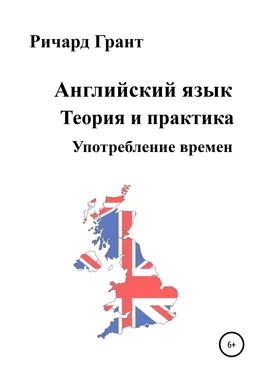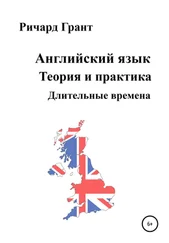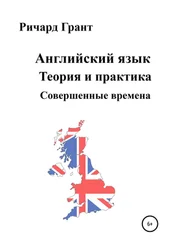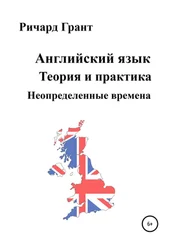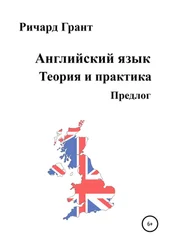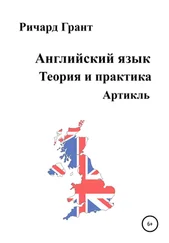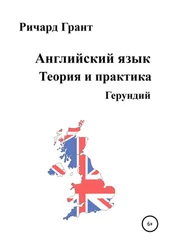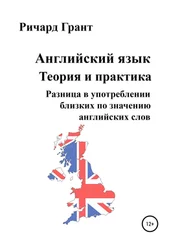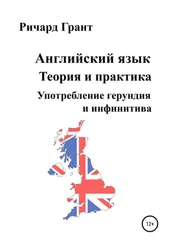Упражнение 39
Раскройте скобки, употребляя глаголы в Past Simple или Past Perfect.
1. He ( to open) his eyes, ( to look) around and ( to try) to remember what ( to happen) to him. 2. She … ( not to enjoy) the film because she … ( to read) the book before. 3. Ann ( to tell) me that she ( to see) an interesting film. 4. All the passengers ( to see) at once that the old man ( to travel) a great deal in his life. 5. Our apartment … ( to be) in a mess because I … ( to have) a birthday party the night before. 6. When I ( to come) home, mother already ( to cook) dinner. 7. By the time we ( to come) to see him, he ( to return) home. 8. We … ( not to go) to a restaurant because we … ( to spend) all our money on clothes. 9. When father ( to return) from work, we already ( to do) our homework. 10. During the holidays my friend ( to visit) the village where he ( to live) in his childhood. 11. Mary … ( can’t go skating) after she … ( to break) her leg. 12. When the teacher ( to enter) the classroom, the pupils already ( to open) their books. 13. When they ( to enter) the hall, the performance already ( to begin). 14. Larry … ( to be) late because he … ( to get) stuck in a traffic jam. 15. Kate ( to give) me the book which she ( to buy) the day before. 16. Yesterday I ( to find) the book which I ( to lose) in summer.
Упражнение 40
Раскройте скобки, употребляя глаголы в Past Simple или Past Perfect.
1. When I came home, my mother ( to tell) me that she ( to receive) a letter from grandfather. 2. Nick ( to show) the teacher the picture which he ( to draw). 3. Where you ( to work) before you ( to go) to university? 4. The boy ( to give) the goats the grass which he ( to bring) from the field. 5. He ( to know) French before he ( to visit) France. 6. Mother ( to see) that Nick ( not to wash) his hands. 7. Lanny ( to say) that he ( to get) his education in Cape Town. 8. The teacher ( to understand) that Lena ( not to do) her homework. 9. The boy ( to want) to act the main part in the play because he ( to organize) the theatre. 10. I ( to know) that my friend ( not yet to come). 11. Lanny ( not to know) who ( to attack) him in the darkness. 12. When I ( to wake) up yesterday, father already ( to go) to work. 13. The girl ( to be) glad that she ( to find) a seat near the window. 14. Nick ( to think) that his father ( not yet to come) home. 15. Suddenly he ( to remember) that he ( not to ring) her up in the morning. 16. When we ( to come) to the station, the train already ( to leave).
Разница между The Present Perfect и The Past Perfect
Время Present Perfect используют для описания действия, которое завершилось к настоящему моменту, в то время как Past Perfect – для действия, которое началось и завершилось к определенному моменту в прошлом.
Основные слова-маркеры Past Perfect и Present Perfect: already (уже) , just (только что), since (с), yet (уже; еще не) , ever (когда-либо), for (на протяжении).
He has already left, but you can call him and ask to wait for you. – Он уже ушел, но ты можешь ему позвонить и попросить подождать тебя. – Present Perfect – (действие завершилось к определенному моменту в настоящем)
When I called the police, the thief had already gone. – Когда я позвонил в полицию, вор уже убежал. – Past Perfect – (действие завершилось к определенному моменту в прошлом)
I haven’t finished cooking yet. Can you, please, wait a bit? – Я еще не закончила готовить ужин. Можешь, пожалуйста, немного подождать? – Present Perfect – (действие завершилось к определенному моменту в настоящем)
I hadn’t finished cooking dinner yet so he ate a sandwich. – Он пришел домой очень рано вчера . Я еще не закончила готовить ужин, поэтому он съел сэндвич. – Past Perfect – (действие завершилось к определенному моменту в прошлом)
We have been married for 20 years, and now he wants to get divorced. – Мы женаты 20 лет , и теперь он хочет развестись . – Present Perfect – (действие завершилось к определенному моменту в настоящем)
We had been married for 20 years and got divorced in 2018. – Мы были женаты 20 лет и развелись в 2018. – Past Perfect – (действие завершилось к определенному моменту в прошлом)
Разница между The Future Perfect, The Future Simple и The Future Continuous
Future Simple – что-то произойдет в будущем – говорим об этом как о факте, без акцента на продолжительности или завершенности действия.
I will buy tickets for the concert tomorrow. – Я куплю билеты на концерт завтра .
He will talk to his boss as soon as he can. – Он поговорит с боссом , как только сможет .
Future Continuous – действие начнется в будущем и будет длиться какое-то время – акцент на продолжительности этого действия.
I will be going home from work this time. – В это время я буду идти с работы домой .
Читать дальше
